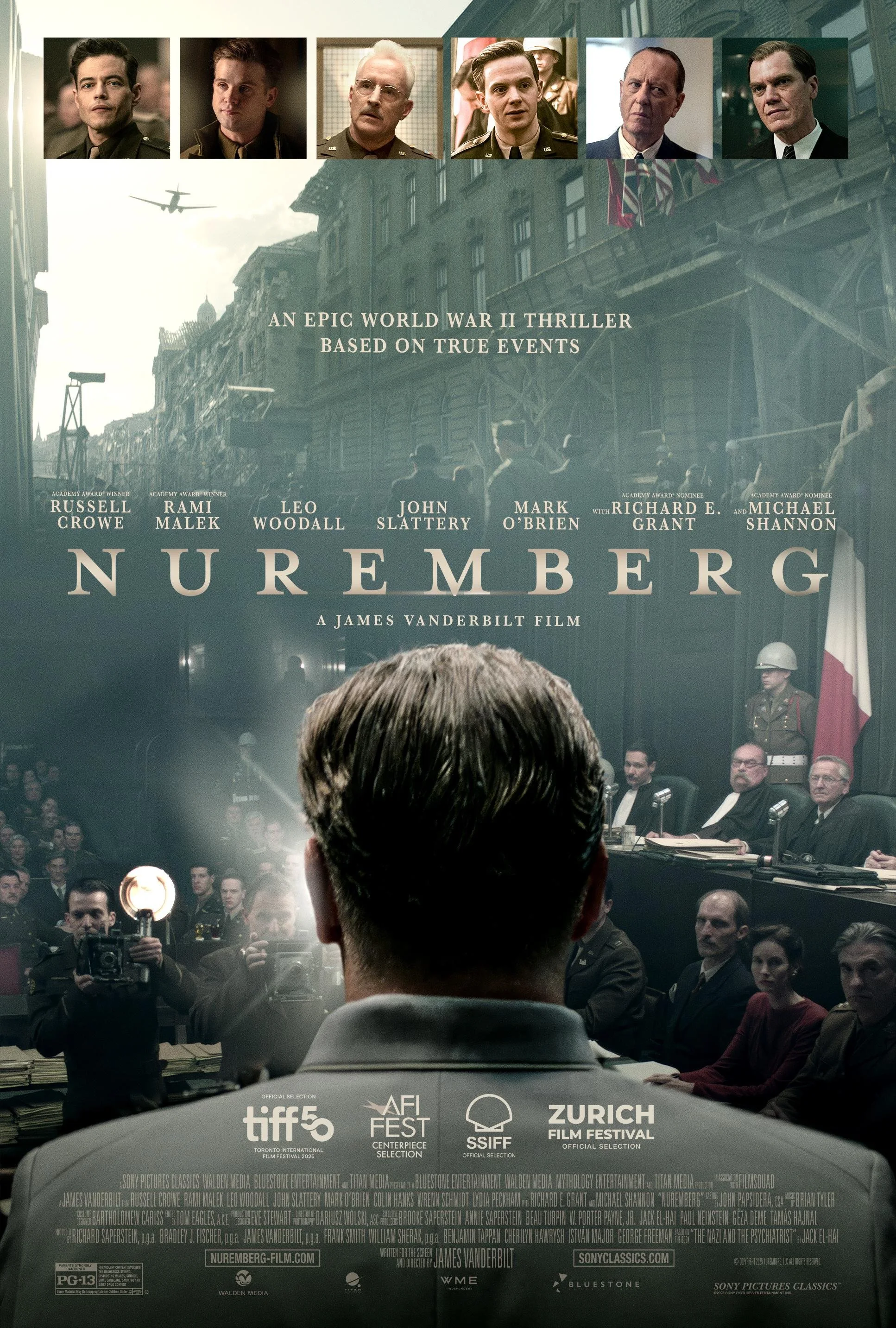Nuremberg
“Abracadabra”.
The topic of World War II feels endless — still relevant, still important. The Nuremberg trials have been portrayed on screen before, but this time we’re getting a very American, Hollywood-sized adaptation from James Vanderbilt. The film follows the story of Douglas Kelley, an American army psychologist assigned to observe the Nazi prisoners awaiting their verdicts in Nuremberg Prison. His main focus is Hermann Göring, who became the leading figure of the Third Reich after Hitler’s suicide.
I hope I don’t need to remind anyone what the Nuremberg trials were and why they happened — something I can’t say about the film’s creators, because Nuremberg feels like it was made for viewers who have absolutely no idea what this historical event actually was. Despite starting off strong simply by choosing such a powerful and important topic, the film ends up being a very America-centric story with the feel of a superhero-villain movie. Which is, I guess, not surprising when you put a director known for slashers and superhero films behind the camera.
At times Nuremberg looks almost Marvel-like — some of the scenes are so literal, so artificial, that they feel plastic and staged. You watch it more like a fairy tale about good guys and bad guys, and only the awareness of what this story actually represents keeps you grounded. When, in the last third of the film, they start showing real footage from the concentration camps — which, in theory, is the right thing to do, because such things should never be re-shot or ignored — it hits as a shock factor. The problem is that up until that moment, the story felt way too casual.
This is a film filled with some of the most important and morally darkest figures in history — and yet, for some reason, we never really get to see who they were. The movie focuses on this very strange, almost “playful” dynamic between Douglas Kelley and Hermann Göring, completely ignoring how this experience ultimately affected Kelley himself and led to the end of his life. Göring, who was absolute evil, somehow comes off as a charming trickster uncle, even though Russell Crowe does a great job with the role.
Completely overshadowed is Howie Trist, played by Leo Woodall, who’s arguably the film’s strongest element — his monologue is the best moment in the entire movie. Meanwhile, David Maxwell Fyfe, who should have been one of the key figures here, is almost invisible. It feels like the filmmakers never fully grasped the tragedy and complexity of this story, choosing instead to give us a set of broad, polished shots, unrealistic dialogues, and an overall “lighter” version of this monumental history.
Yes, the film looks big, grand, even shiny — which might sound like a compliment — but in this case, that’s not necessarily a good thing. It’s nice that, at least by the end, the film raises the issue of how Nazism, though defeated, never truly disappeared. It remained — spreading quietly through the world, something we can see clearly today. But this one striking minute at the end isn’t enough to honestly or fully capture the scale of this story.
Nuremberg starts off decently and ends more or less on a strong note, but the middle has no real substance. At times it feels like they’re trying to sell you an adaptation of history — not a truthful retelling of it.
5.5/10
Please consider subscribing to our newsletter to stay updated on the most interesting music and movie reviews.




